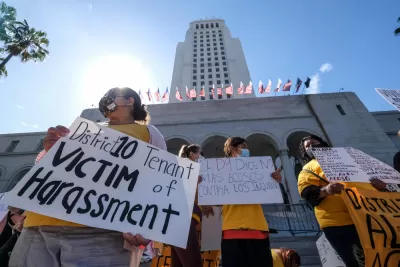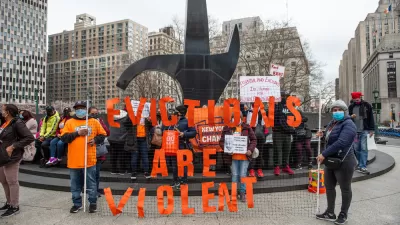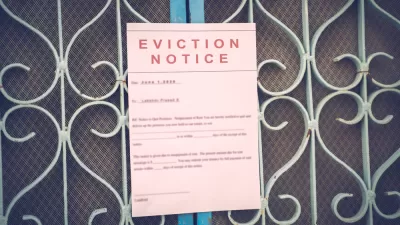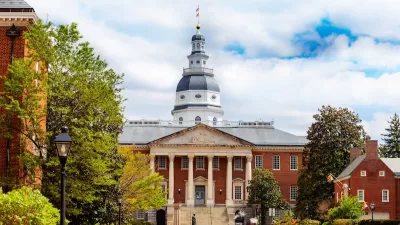With the U.S. Supreme Court refusing to hear the latest challenge to the city’s eviction moratorium, eviction protections in Los Angeles remain in place—for now.

“On Monday, the U.S. Supreme Court decided not to take up an appeal from the Apartment Association of Greater Los Angeles (AAGLA). The decision effectively leaves in place the city of L.A.’s ongoing eviction protections for renters negatively affected by the COVID-19 pandemic,” reports David Wagner.
“Tenant advocates hailed the decision as a victory for local governments that passed policies to protect renters from losing their homes during a deadly and economically perilous pandemic.” Meanwhile, “The group representing local property owners [AAGLA] argued the city’s eviction moratorium illegally meddled with lease contracts signed by landlords and tenants.”
Rent relief efforts throughout the state have attempted to compensate landlords for missed payments during the pandemic, but those efforts have left many landlords hanging. With applications now closed, about half of applicants in L.A. County are still waiting for funding, and some small landlords with delinquent tenants have been completely shut out of the state’s rent relief program.
Wagner notes that “The city’s eviction rules have made it much harder for landlords to remove non-paying tenants, but the policy has not stopped all eviction proceedings from moving forward. In many cases, L.A. tenants unable to pay rent say they’ve instead faced evictions for what they consider exaggerated charges of nuisance.”
While housing advocates feared that the end of pandemic-era eviction moratoriums would lead to an ‘eviction tsunami,’ recent data shows that evictions are actually at low levels, historically speaking. However, with housing costs continuing to rise (despite a predicted crash), the disruptions in jobs and the housing market during the last two years could still have long-term impacts on rent and housing affordability.
FULL STORY: LA’s Eviction Moratorium Holds As Supreme Court Refuses To Hear Landlords’ Challenge

Study: Maui’s Plan to Convert Vacation Rentals to Long-Term Housing Could Cause Nearly $1 Billion Economic Loss
The plan would reduce visitor accommodation by 25,% resulting in 1,900 jobs lost.

Alabama: Trump Terminates Settlements for Black Communities Harmed By Raw Sewage
Trump deemed the landmark civil rights agreement “illegal DEI and environmental justice policy.”

Why Should We Subsidize Public Transportation?
Many public transit agencies face financial stress due to rising costs, declining fare revenue, and declining subsidies. Transit advocates must provide a strong business case for increasing public transit funding.

Paris Bike Boom Leads to Steep Drop in Air Pollution
The French city’s air quality has improved dramatically in the past 20 years, coinciding with a growth in cycling.

Why Housing Costs More to Build in California Than in Texas
Hard costs like labor and materials combined with ‘soft’ costs such as permitting make building in the San Francisco Bay Area almost three times as costly as in Texas cities.

San Diego County Sees a Rise in Urban Coyotes
San Diego County experiences a rise in urban coyotes, as sightings become prevalent throughout its urban neighbourhoods and surrounding areas.
Urban Design for Planners 1: Software Tools
This six-course series explores essential urban design concepts using open source software and equips planners with the tools they need to participate fully in the urban design process.
Planning for Universal Design
Learn the tools for implementing Universal Design in planning regulations.
Smith Gee Studio
Alamo Area Metropolitan Planning Organization
City of Santa Clarita
Institute for Housing and Urban Development Studies (IHS)
City of Grandview
Harvard GSD Executive Education
Toledo-Lucas County Plan Commissions
Salt Lake City
NYU Wagner Graduate School of Public Service





























